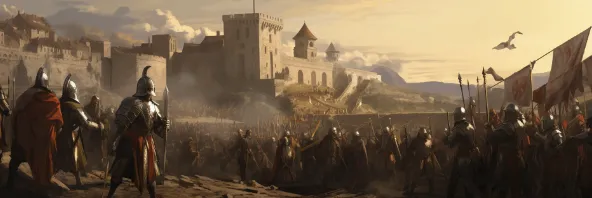Vepsian Culture

Commands
The following command will set your culture to 'Vepsian.'
The following command will change the culture of the specified county to 'Vepsian.'
Information
| Name | Vepsian |
| Culture ID | vepsian |
| Heritage | Balto-Finnic |
| Ethos | Egalitarian |
| Language | Finnic |
| Architecture | Continental European |
| Fashion | Northern European |
| Coat of Arms | Balto-Finnic |
| Military Equipment | Northern European |
Overview
The Vepsians are a unique ethnic group native to Russia, specifically in the regions along the shores of Lake Onega. They are recognized as an indigenous people of Russia and are known for preserving their ancient Uralic roots. The Vepsian culture has a population of about 6,000, and they speak the Veps language, part of the Finno-Ugric languages family.
Vepsian culture is incredibly rich, influenced greatly by their natural surroundings. The heavily forested regions they inhabit inspire their folklore, full of tales about forest spirits and sacred animals. They have a strong tradition of hunting and fishing, which is reflected in their diet, consisting largely of fish and game meat, alongside foraged berries and mushrooms.
The Vepsians are also known for their superb craftsmanship. They have maintained traditions of weaving and embroidery, creating intricate patterns on clothing and textiles. This skill is also seen in their woodwork and other artisan crafts.
Their spiritual beliefs were until recent times animistic, but with Christian influence, many Vepsians today are part of the Russian Orthodox Church. Despite modern influences, they have managed to sustain their distinct language and traditions. Today, there are efforts to revitalize the Vepsian culture, language, and traditions, underlining the importance of this unique and resilient culture.
Egalitarian Ethos

Egalitarian Ethos
Intolerance and isolationism may be the way for others, but this culture recognizes that accepting difference is far better than annihilating it.
- +35% Cultural Acceptance Gain
- +10 Vassal Limit
- +5 Different Culture Opinion
- +5 Different Faith Opinion
- +10 Minority Vassal Opinion
Each culture will have an ethos, which represents the core values, principles and attitude towards life that the culture has. It also determines which court types are available for kingdoms and empires.
Vepsian Traditions
- Isolationist
- Xenophilic
Each culture will have several traditions, which represent the main customs of a culture and can grant various effects. A culture can have up to five traditions in the tribal era, with every additional era reached granting an additional slot for Traditions.
Vepsian Architecture
Continental European
